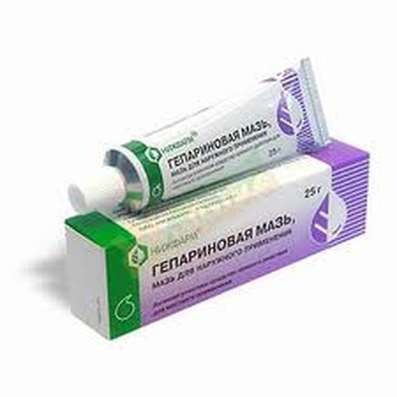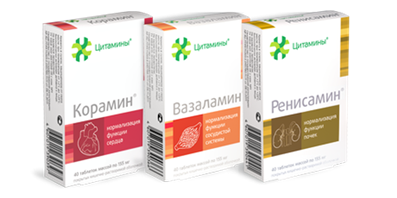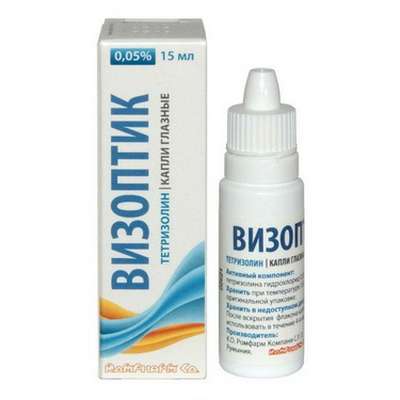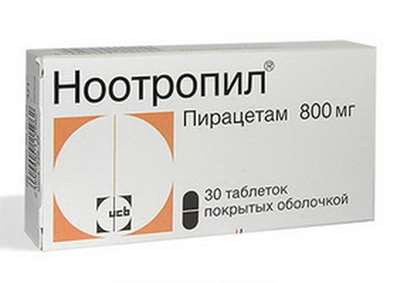Adepress (Paroxetine) tablets - Instructions for Use, Dosage, Side Effects, Reviews
18 Jan 2017
Synonyms: Actaparoxetine, Adco-Paroxetine, Apodepi, APT-Paroxetine, Arketis, Aropax, Axepat, CO Paroxetine, Deparoc, Deproxyl, Deprozel, Deroxat, Divarius, Doc Paroxetine, Dropax, Eugine, Humoxat, Melev, Moxetin, Neurotrox, Olane, Oxat, Oxitine-PR, Pacex, Paluxetil, Pamax, Pamoxet, Panex, Parax, Parexat, Parexis, Pari, Pari CR, Parocetan, Parogen, ParoGen, Paroksetin Actavis, Paroksetin Aurobindo, Paroksetin Teva, Parotin, Paroxat, Paroxet, Paroxetin Actavis, Paroxetin Hexal, Paroxetin Teva, Paroxetina Bluepharma, Paroxetina Germed, Paroxetina La Santé, Paroxetina, Paroxetine Aurobindo, Paroxetine EG, Paroxetine ratiopharm, Paroxetine Teva, Paroxetine-GA, Paroxetin-ratiopharm, Paroxil, Paxan, Paxera, Paxetin, Paxil, Paxotin, Petin-CR, Pharmapar, Plisil, Raxit, Rexetin, Sarolife, Serestill, Serrapress, Sumiko, Traviata, Xilanic, Afenexil, Allenopar, Anziatina, Apo-Parox, Apo-Paroxetine, Arapaxel, Arketis, Aropax, Arotin, Aroxat, Bectam, Benepax, Caremod, Casbol, Cebrilin, Chemmart Paroxetine, Datevan, Denerval, Deroxat, Doc Paroxetine, Dropaxin, Eutimil, Extine, Frosinor, Gen-Paroxetine, GenRX Paroxetine, Le You, Loxamine, Meplar, Moratus, Motivan, Noprilex, Novo-Paroxetine, Ocampina, Optipar, Paluxon, Paretin, Parexel, Parocetan, Parogen, Parolex, Paromerck, Paronex, Parosat, Parosenin, Paroser, Parotin, Parox, Paroxalon, Paroxat Hexal, Paroxat, Paroxe, Paroxedura, Paroxetin - 1 A Pharma, Paroxetin +pharma, Paroxetin 1A Farma, Paroxetin 1A Pharma, Paroxetin 2care4, Paroxetin AbZ, Paroxetin Actavis, Paroxetin AL, Paroxetin Arcana, Paroxetin Aurobindo, Paroxetin beta, Paroxetin Easypharm, Paroxetin Genericon, Paroxetin Helvepharm, Paroxetin Hexal, Paroxetin HEXAL, Paroxetin Interpharm, Paroxetin Nycomed, Paroxetin Orifarm, Paroxetin Orion, Paroxetin PCD, Paroxetin Pfizer, Paroxetin ratiopharm, Paroxetin Sandoz, Paroxetin STADA, Paroxetin Teva, Paroxetina Acost, Paroxetina Actavis, Paroxetina Almus, Paroxetina Alter, Paroxetina Aphar, Paroxetina Apotex, Paroxetina Arafarma Group, Paroxetina Bexal, Paroxetina Cinfa, Paroxetina Combix, Paroxetina Cuve, Paroxetina Davur, Paroxetina Decrox, Paroxetina Doc, Paroxetina Edigen, Paroxetina EG, Paroxetina Farmalid, Paroxetina Germed, Paroxetina Hexal, Paroxetina Jaba, Paroxetina Kern Pharma, Paroxetina Labesfal, Paroxetina Mabo, Paroxetina Mepha, Paroxetina MK, Paroxetina Mundogen, Paroxetina Mylan, Paroxetina Normon, Paroxetina Paxpar, Paroxetina Pensa, Paroxetina Pharmagenus, Paroxetina Qualigen, Paroxetina Ranbaxy, Paroxetina Ratiopharm, Paroxetina Rimafar, Paroxetina Sandoz, Paroxetina Stada, Paroxetina Tarbis, Paroxetina Teva, Paroxetina Tevagen, Paroxetina Ur, Paroxetina Uxa, Paroxetina Winthrop, Paroxetina, Paroxetin-CT, Paroxetine Actavis, Paroxétine Actavis, Paroxétine Alter, Paroxetine Apotex, Paroxétine Arrow, Paroxetine Aurobindo, Paroxétine Biogaran, Paroxetine CF, Paroxétine CristerS, Paroxetine EG, Paroxétine EG, Paroxétine Evolugen, Paroxetine Generics, Paroxetine GenRx, Paroxetine Hydrochloride Actavis, Paroxetine Hydrochloride Alphapharm, Paroxetine Hydrochloride Apotex, Paroxetine Hydrochloride Aurobindo, Paroxetine Hydrochloride Caraco, Paroxetine Hydrochloride Mylan, Paroxetine Hydrochloride Teva, Paroxetine Hydrochloride Zydus, Paroxetine I.C.C., Paroxétine Isomed, Paroxetine Mylan, Paroxétine Mylan, Paroxetine Orion, Paroxetine PCH, Paroxetine Pharma, Paroxetine ratiopharm, Paroxétine Ratiopharm, Paroxétine RPG, Paroxetine Sandoz, Paroxétine Sandoz, Paroxetine Teva, Paroxetine Winthrop, Paroxétine Zydus, Paroxetine, Paroxetin-Hormosan, Paroxetin-neuraxpharm, Paroxetin-ratiopharm, Paroxia, Paroxiflex, Paroxin, Paxeratio, Paxetil, Paxetin, Paxil CR, Paxil, Paxil CR, Paxtin, Paxtine, Paxxet, Pharmacor Paroxetine, PMS-Paroxetine, Pondera, Posivyl, Prexat, Prexor, Psicoasten, ratio-Paroxetine, Remood, Rexetin, Roxetin, Sandoz Paroxetine, Seretran, Seroxat, Seroxat CR, Setine, Sicotral, Solben, Stiliden, Taberil, Terry White Chemists Paroxetine, Teva-Paroxetine, Tiarix, Traviata, Xerenex, Xet, Xetanor, Xetin, Xetine-P, Zyparox, Aipratex (Paroxetine and Alprazolam), Cronadyn, Depoxat, Deprozel, Paroksetin Pfizer, Paroksetin PharmaS, Paroten, Paroxat, Paroxetin Orifarm, Paroxetin Orion, Paroxetin Pfizer, Paroxetin Spirig, Paroxetin Teva, Paroxetine A, Paroxetine Aurobindo, Paroxetine GSK, Paroxetine Orion, Paroxétine Pfizer, Paroxétine PHR Lab, Paroxétine Teva, Paroxétine Zentiva, Paroxetine, Paroxetin-hemihydrat-Teva, Paroxetin-Mepha, Paroxetin-ratiopharm, Paroxetin-Teva, Paxil, Remood, Rexetin, Riedilex, Roxepar, Serestill, Sereupin, Seroxat, Stiliden, Traviata XR, Daparox, Divarius, Ennos, Paroxetin Avansor, Paroxetine Generichealth, Paroxetine Genthon, Paroxetine Kiron, Pexeva, Plisil.
Active substance: Paroxetine.
What is paroxetine?
Paroxetine is an antidepressant in a group of drugs called selective serotonin reuptake inhibitors (SSRIs). Paroxetine affects chemicals in the brain that may be unbalanced in people with depression, anxiety, or other disorders.
Paroxetine is used to treat depression, obsessive-compulsive disorder, anxiety disorders, post-traumatic stress disorder (PTSD), and premenstrual dysphoric disorder (PMDD).
Paroxetine may also be used for purposes not listed in this medication guide.
What should I discuss with my healthcare provider before taking paroxetine?
You should not use this medicine if you are allergic to paroxetine, or if:
you are also taking pimozide or thioridazine; or
you are being treated with methylene blue injection.
Do not use an MAO inhibitor within 14 days before or after you take paroxetine. A dangerous drug interaction could occur. MAO inhibitors include isocarboxazid, linezolid, phenelzine, rasagiline, selegiline, and tranylcypromine. After you stop taking paroxetine you must wait at least 14 days before you start taking an MAO inhibitor.
ATC - N06AB05 Paroxetine
Pharmacological group - Antidepressants.
Nosological classification (ICD–10)
F10.2 alcohol dependence syndrome;
F31.9 Bipolar affective disorder, unspecified;
F32 Depressive episode;
F34.1 Dysthymia;
F41.0 Panic disorder [episodic paroxysmal anxiety];
F42.9 Obsessive-compulsive disorder, unspecified.
Composition, structure and packing
Film-coated tablets are white or nearly white, round, biconvex.
Other ingredients: calcium hydrogen phosphate (calcium phosphate dibasic), corn starch, sodium carboxymethyl starch (Primogel), magnesium stearate.
Cover structure: Opadry II (hypromellose, lactose monohydrate, macrogol/polyethylene glycol 3350, polyethylene glycol 4000 /, titanium dioxide).
Pharmacological action
Antidepressant. Is a selective inhibitor of the reuptake of serotonin (5-hydroxytryptamine, 5-HT) neurons in the brain, which determines its antidepressant action and effectiveness in the treatment of obsessive-compulsive (OCD) and panic disorder.
Paroxetine has low affinity for m-cholinergic receptors (has weak anticholinergic action), α1 -, α2 - and β-adrenergic receptors, as well as dopamine (D2), 5HT1 -like, 5HT2 -like and histamine H1 - receptors. Paroxetine does not violate the psychomotor function and does not potentiate the inhibitory effect of ethanol on them. You can buy Adepress.
According to the study of behavior and EEG of paroxetine detected weak activating properties when it is administered at doses higher than those required for the inhibition of serotonin reuptake. In healthy volunteers, it does not cause a significant change in blood pressure, heart rate and EEG.
Pharmacokinetics
Absorption
After oral administration of paroxetine is well absorbed from the gastrointestinal tract. Simultaneous ingestion does not affect the absorption and pharmacokinetics of paroxetine.
Distribution
The equilibrium state is reached after 7–14 days after initiation of therapy, further pharmacokinetics during long-term therapy is not changed. Clinical effects of paroxetine (adverse effects and effectiveness) are not correlated to its concentration in plasma.
Since paroxetine exposed the effect of “first pass” through the liver, the amount determined in the systemic circulation is less than that which is absorbed from the gastrointestinal tract. With increasing doses of paroxetine or with repeated dosing of a partial absorption of the effect of “first pass” through the liver and reduced plasma clearance of paroxetine. As a result, this may increase the concentration of Paroxetine in the plasma pharmacokinetic parameters and vibrations that can occur only in those patients taking the drug at a low dose of paroxetine achieved low levels in plasma.
Paroxetine is extensively distributed in the tissues and pharmacokinetic calculations indicate that only 1% of it is present in the plasma, and in therapeutic concentrations, 95% bound to plasma proteins.
Metabolism
The major metabolites of paroxetine are polar and conjugated products of oxidation and methylation, which are rapidly cleared from the body, have a weak pharmacological activity and do not affect its therapeutic effect.
Excretion of metabolites of paroxetine biphasic, first as a result of “first pass” through the liver, and then it is controlled by systemic elimination.
Excretion
T 1/2 paroxetine is in the range of from 6 to 71 h, but the average was 24 hours. About 64% of the paroxetine is excreted with urine (2% - unchanged, 64% - as metabolites); approximately 36% is excreted in the bile through the intestines, mostly in the form of metabolites, less than 1% - unchanged.
Pharmacokinetics in special clinical situations
The concentration of paroxetine in plasma increases with abnormal liver function and kidney function, as well as in the elderly, and the range of plasma concentrations of almost coincides with the range of concentrations in healthy adult volunteers.
Adepress (Paroxetine) Dosage
Tablets should be taken 1 time/day, in the morning, during a meal, without chewing, drinking water.
The dose is adjusted individually for the first 2–3 weeks after initiation of therapy and subsequently adjusted if necessary. The effect is, in most cases develops gradually.
In depression the recommended dose is 20 mg 1 time/day. If necessary, gradually increase the dose by 10 mg at intervals of 1 week to achieve a therapeutic effect, the maximum daily dose should not exceed 50 mg/day.
In obsessive-compulsive disorders initial therapeutic dose is 20 mg/day, followed by weekly increases of 10 mg to achieve a therapeutic response. Recommended average therapeutic dose - 40 mg/day, if necessary, the dose may be increased to 60 mg/day.
When panic disorder initial dose - 10 mg/day (in order to reduce the possible risk of acute panic symptoms), followed by weekly increases of 10 mg. The average therapeutic dose - 40 mg/day. The maximum daily dose should not exceed 60 mg/day.
When social anxiety disorder/social phobia, the initial dose is 20 mg/day, with no effect for a minimum of 2 weeks may increase the dose to a maximum of 50 mg/day. Dose should be increased to 10 mg at intervals of not less than a week in accordance with the clinical effect.
In PTSD, for most patients the initial and therapeutic dose is 20 mg/day. In some cases it is recommended to increase the maximum dose of 50 mg/day. Dose should be increased by 10 mg every week in accordance with the clinical effect.
In generalized anxiety disorders and the initial therapeutic dose is 20 mg/day.
When renal and/or hepatic insufficiency the recommended dose is 20 mg/day.
For Older patients the daily dose should not exceed 40 mg.
To prevent a recurrence necessary supportive therapy. Once the symptoms of depression this course may be 4–6 months, while obsessive and panic disorders - more than 4–6 months.
Avoid abrupt withdrawal of the drug. In order to prevent the development of withdrawal discontinuation of the drug should be gradual.
Adepress (Paroxetine) Overdose
Symptoms: nausea, dilated pupils, fever, changes in blood pressure, headache, involuntary muscle contractions, agitation, anxiety, tachycardia. In very rare cases, when taken with other psychotropic drugs and/or ethanol (alcohol), possible changes in the EKG, coma.
Treatment: gastric lavage, administration of activated charcoal. If necessary, symptomatic therapy. No specific antidote.
Adepress (Paroxetine) Drug Interactions
Simultaneous treatment with antacids does not affect the absorption and pharmacokinetic parameters of Adepress.
Due to the inhibition of cytochrome P–450 with paroxetine may increase the effect of barbiturates, phenytoin, anticoagulants, tricyclic antidepressants, phenothiazine neuroleptics and antiarrhythmics class 1C, metoprolol, and increased risk of side effects, while the appointment of these medicines.
When concomitant administration with drugs that inhibit liver enzymes, may require dose reduction of Adepress.
Between paroxetine and warfarin is expected pharmacodynamic interaction (with unchanged prothrombin time marked by increased bleeding).
While appointing of Adepress with atypical antipsychotics, tricyclic antidepressants, drugs phenothiazine series, aspirin, NSAIDs may impair the process of blood clotting.
Simultaneous with the appointment of Adepress with serotonergic drugs (tramadol, sumatriptan) may lead to increased serotonin effect.
Observed synergy among the tryptophan drugs lithium and paroxetine.
While appointing of Adepress phenytoin and other anticonvulsants may decrease the concentration of paroxetine in plasma and increased frequency of side effects.
Paroxetine much weaker suppresses guanethidine antihypertensive effects in comparison with antidepressants which inhibit noradrenaline.
Adepress (Paroxetine) Side effects
CNS and peripheral nervous system: often - drowsiness or insomnia, tremor, fatigue, dizziness, anxiety; sometimes - confusion, hallucinations, extrapyramidal disorders, paresthesias, decreased ability to concentrate; rarely - seizures, mania; very rare - serotonin syndrome (agitation, hyperreflexia, diarrhea), panic disorder.
On the part of the organ of vision: in some cases - blurred vision, mydriasis.
On the part of the musculoskeletal system: rarely - myasthenia gravis, myoclonus, arthralgia, myalgia.
Urinary system: frequent urination; rarely - urinary retention.
Part of the reproductive system: ejaculation disorders, disorders of libido; rarely - hyperprolactinaemia/galactorrhoea, anorgasmia.
From the digestive system: loss of appetite, nausea, vomiting, dry mouth; sometimes - constipation or diarrhea; in some cases - hepatitis.
Cardio-vascular system: orthostatic hypotension.
Allergic reactions: seldom - rash, urticaria, ecchymosis, pruritus, angioedema.
Other: increased sweating; in rare cases - hyponatremia, inappropriate secretion of antidiuretic hormone.
Adepress (Paroxetine) Indications
Depression of all types, including reactive, endogenous depression and severe depression accompanied by anxiety;
Obsessive-compulsive disorder (OCD);
Panic disorder, including with the fear of staying in the crowd (agoraphobia);
Social anxiety disorder/social phobia;
Generalized anxiety disorder;
Post-traumatic stress disorder.
Contraindications
Concomitant use of monoamine oxidase inhibitors and a period of 14 days after their cancellation;
Unstable epilepsy;
Pregnancy;
Lactation (breastfeeding);
Hypersensitivity to the drug.
Precautions should be prescribed the drug for hepatic failure, renal failure, closed-angle glaucoma, prostatic hyperplasia, mania, heart disease, epilepsy, convulsive states, while the appointment of cardioversion, simultaneous administration of drugs that increase the risk of bleeding, the presence of risk factors for bleeding disorders and diseases increase the risk of bleeding, as well as elderly patients.
Cautions
In order to avoid the development of neuroleptic malignant syndrome should be given with caution Adepress patients taking neuroleptics.
Treatment by Adepress appoint 2 weeks after discontinuation of MAO inhibitors.
In elderly patients, in patients receiving of Adepress possible hyponatremia.
In some cases, dosage adjustment is simultaneously applied insulin and/or oral hypoglycemic drugs.
With the development of seizures treatment by Adepress is stopped.
At the first sign of mania should be discontinued therapy of Adepress.
During the first few weeks of therapy of Adepress should carefully monitor the condition of the patient in relation to possible suicide attempts.
During therapy of Adepress should abstain from alcohol in connection with the enhancement of its toxicity.
Use in Pediatrics
Application of Adepress children not recommended as its safety and efficacy in this group of patients have not been established.
Effects on ability to drive vehicles and management mechanisms
Despite the fact that paroxetine does not impair cognitive and psychomotor performance, patients should refrain or exercise extreme caution when driving and when engaging in other potentially hazardous activities that require high concentration and speed of psychomotor reactions.
Renal impairment
Precautions should be prescribed the drug for renal failure. In renal insufficiency, the recommended dose is 20 mg/day.
In hepatic dysfunction
Precautions should be prescribed the drug for liver failure. In hepatic impairment the recommended dose is 20 mg/day.
Adepress (Paroxetine) Reviews
Doctors Reviews about Adepress
Adepress (Paroxetine) - A good analogy of the famous Paxil. Among the notable advantages of the drug, it may be noted a good clinical effect in the medium and heavy anxiety and depressive disorders. OCD, panic attacks, in the rehabilitation of gambling addiction and dependence on cannabis. When the duration of a course of therapy 5 months, the results are quite good.
Adepress - A good generic Rexetine / paroxetine, respectively, the price is not bad, as the onset of action of all serotonin antidepressants 10-14 days. Operates well in generalized anxiety, anxiety-depressive states, panic attacks. + This technique once a day.
I am quite often in my clinical practice using Adepress and its analogs. Adepress very effective in depressive disorders of varying severity, with anxiety and depressive disorders, as well as generalized anxiety disorder, accompanied by panic attacks. The effect begins to appear after 10-14 days from the start of the reception. The most common side effect from my experience primeneriya Adepressa is nausea, which can be avoided by taking the drug with a gradual increase in dosage. Also gradually should pursue the abolition of the drug to avoid withdrawal symptoms. Price matches the quality of the drug.
Patient Review about Adepress
Adepress really helps during stress. Well, I have these moments do not happen often, so do not regularly use this drug and can not say about its side factors, if any. But for a single exposure - very effective.
Read reviews of real people about Adepress and not be afraid to ask your doctor about these medications! Yes, it lifted me nervous tension almost immediately, but after three days of reception I realized that I had already become dependent on him. Action from it stronger, somnolence and fatigue, it is due to this and passes the feeling of anxiety and nervousness. There are medications and much better with a softer effect.
Adepress Good medicine, but I do not advise to take without a prescription. Yes, over the counter without a prescription, and you do not sell. The first time was a strange sensation, lethargy, some after starting. Then nothing, the body has adapted, it lasted a week. Now, after the full course of the drug I feel great. Alert left me, headaches and underwent a great mood. We can say now I live a full life, and relations with household adjusted.

 Cart
Cart





